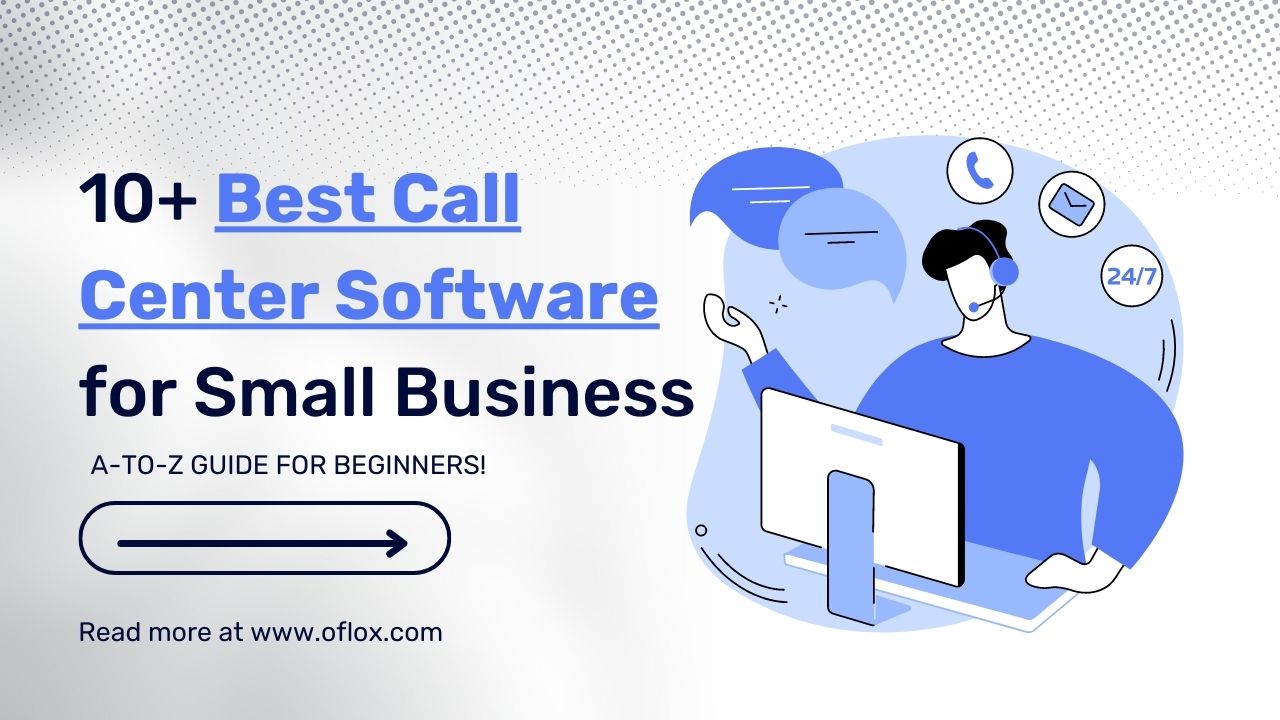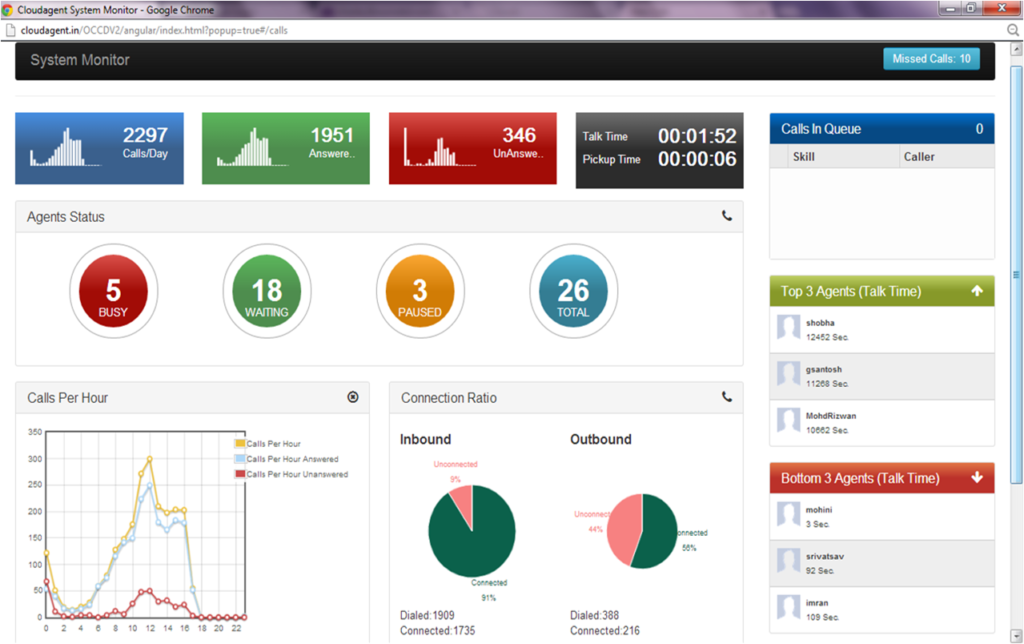Crafting an Effective Small Business Call Center Software Strategy
Exploring the realm of Small Business Call Center Software opens up a world of possibilities for enhancing customer service and operational efficiency. From defining the software to delving into its key features, this article aims to provide a comprehensive guide for businesses seeking to optimize their call center operations.
As we navigate through the intricacies of call center software, we will uncover the essential components that make these solutions indispensable for small businesses looking to thrive in a competitive landscape.
Introduction to Small Business Call Center Software
Small business call center software is a specialized tool designed to help small businesses manage their incoming and outgoing calls efficiently. It provides features like call routing, call recording, analytics, and CRM integration to streamline communication processes.
The importance of using call center software for small businesses cannot be overstated. It helps enhance customer service, improve agent productivity, and optimize call handling processes. By centralizing all communication channels in one platform, small businesses can ensure a seamless and consistent customer experience.
Popular Small Business Call Center Software Solutions
- Freshdesk Contact Center: This cloud-based solution offers features like IVR, call queuing, and call analytics, ideal for small businesses looking to enhance their customer support.
- Zoho Desk: Zoho Desk provides a comprehensive call center solution with ticketing, knowledge base, and telephony integration, making it a popular choice for small businesses.
- RingCentral: RingCentral offers a complete communication platform with voice, video, and messaging capabilities, making it a versatile option for small businesses looking for an all-in-one solution.
Key Features of Small Business Call Center Software

Small business call center software plays a crucial role in enhancing customer service and operational efficiency. Here are some key features that every small business call center software should have:
1. Interactive Voice Response (IVR) System
An IVR system allows customers to interact with an automated system using voice commands or keypad inputs, directing them to the appropriate department or information without the need for human intervention.
2. Automatic Call Distribution (ACD)
ACD helps distribute incoming calls to the most appropriate agent based on various factors such as availability, skillset, and priority, ensuring efficient call handling and reduced wait times for customers.
3. Call Monitoring and Recording
Call monitoring and recording features enable supervisors to listen in on calls, provide real-time feedback to agents, and review recorded calls for quality assurance and training purposes.
4. Reporting and Analytics
Robust reporting and analytics tools provide insights into call center performance, agent productivity, customer satisfaction levels, and identify areas for improvement through data-driven decision-making.
5. CRM Integration
Integration with Customer Relationship Management (CRM) systems allows agents to access customer information, history, and preferences, enabling personalized interactions and efficient issue resolution.
6. Multi-channel Support
Support for multiple communication channels such as voice, email, chat, and social media ensures seamless customer interactions across various platforms, enhancing customer experience and satisfaction.
Implementation and Integration
Implementing call center software into small businesses can greatly enhance their customer service and overall efficiency. Integrating this software with existing systems is a crucial step to ensure a seamless operation. Below are the steps for integrating call center software and potential challenges with solutions:
Steps for Integrating Call Center Software
- Assess Current Systems: Evaluate the current systems in place to identify areas where call center software can be integrated.
- Choose the Right Software: Select a call center software that aligns with the needs and requirements of the business.
- Training and Onboarding: Provide adequate training to employees on how to use the software effectively.
- Data Migration: Transfer existing data to the new software system to ensure continuity in operations.
- Testing and Optimization: Test the integrated system thoroughly and optimize it for maximum efficiency.
Potential Challenges and Solutions
- Compatibility Issues: Ensure that the call center software is compatible with existing systems by consulting with the software provider for solutions.
- Data Security Concerns: Implement robust security measures to protect customer data and comply with regulations such as GDPR.
- Lack of Employee Buy-In: Provide comprehensive training and demonstrate the benefits of the software to gain employee buy-in.
- Integration Complexity: Seek assistance from IT professionals or the software provider to navigate any complexities during integration.
Benefits of Small Business Call Center Software
Small business call center software offers numerous advantages for businesses looking to improve customer service and streamline operations.
Improved Customer Service
- Enhanced call routing and management tools ensure that customers are connected to the right agent quickly.
- Integration with CRM systems allows agents to access customer information instantly, leading to personalized interactions.
- Automated workflows and self-service options reduce customer wait times and improve satisfaction.
Increased Efficiency
- Call center software automates repetitive tasks, freeing up agents to focus on more complex customer inquiries.
- Real-time reporting and analytics provide insights into call volume, agent performance, and customer trends, allowing for data-driven decision-making.
- Predictive dialers and call scripting tools help agents handle calls more efficiently, leading to higher productivity.
Cost Savings
- By optimizing call routing and reducing call handling times, businesses can lower their overall operational costs.
- Remote agent capabilities allow for flexible workforce management, reducing overhead expenses associated with a physical call center.
- Scalable pricing options make call center software affordable for small businesses, with the ability to adjust costs based on usage.
Case Study: XYZ Company
XYZ Company implemented small business call center software and saw a 20% increase in customer satisfaction ratings within the first month.
By utilizing real-time reporting features, XYZ Company was able to identify bottlenecks in their call handling process and make necessary adjustments, resulting in a 15% decrease in average call times.
Scalability and Growth
- Small business call center software is designed to scale with growing businesses, allowing for easy expansion of agent seats and features as needed.
- Integration with other business tools and applications enables seamless communication and collaboration across departments, fostering organizational growth.
- Advanced features such as AI-powered chatbots and speech analytics help businesses stay competitive and adapt to changing customer needs.
Customization and Scalability
Customization and scalability are crucial aspects of small business call center software as they allow companies to tailor the software to meet their specific needs and grow along with their business.
Importance of Customizable Features
Customizable features in small business call center software enable companies to personalize the platform according to their unique requirements. This can include customizing call routing rules, IVR scripts, reporting dashboards, and integrations with other tools. By having the ability to customize these features, businesses can improve efficiency, enhance customer experience, and streamline operations to better meet their goals.
Benefits of Scalability
Scalability in call center software allows small businesses to adjust the size and scope of their operations as needed. For example, if a company experiences sudden growth, scalable software can easily accommodate an increase in call volume, agent numbers, or additional features without disrupting daily operations.
This flexibility helps small businesses adapt to changing market conditions, improve productivity, and maintain customer satisfaction levels.
Best Practices for Customizing and Scaling
- Conduct a thorough analysis of your business needs and goals before customizing or scaling your call center software.
- Work closely with your software provider to understand the customization options available and how they can be tailored to your specific requirements.
- Implement changes gradually to minimize disruptions and ensure a smooth transition for agents and customers.
- Regularly review and adjust your customized features and scalability settings to align with evolving business needs and industry trends.
- Provide adequate training and support to your team to maximize the benefits of the customized and scalable call center software.
Closing Notes

In conclusion, Small Business Call Center Software offers a myriad of benefits that can revolutionize how businesses interact with their customers and streamline their operations. By embracing the customization, scalability, and integration possibilities of this software, small businesses can pave the way for sustainable growth and success.
FAQ Overview
How can small business call center software benefit my company?
Small business call center software can enhance customer interactions, improve efficiency, and provide valuable insights into customer behavior.
What are some popular small business call center software solutions?
Some popular options include Zendesk Talk, Aircall, and Freshcaller, known for their user-friendly interfaces and robust features.
What challenges can arise when integrating call center software with existing systems?
Common challenges include data migration issues, compatibility problems, and ensuring seamless communication between different platforms.